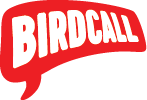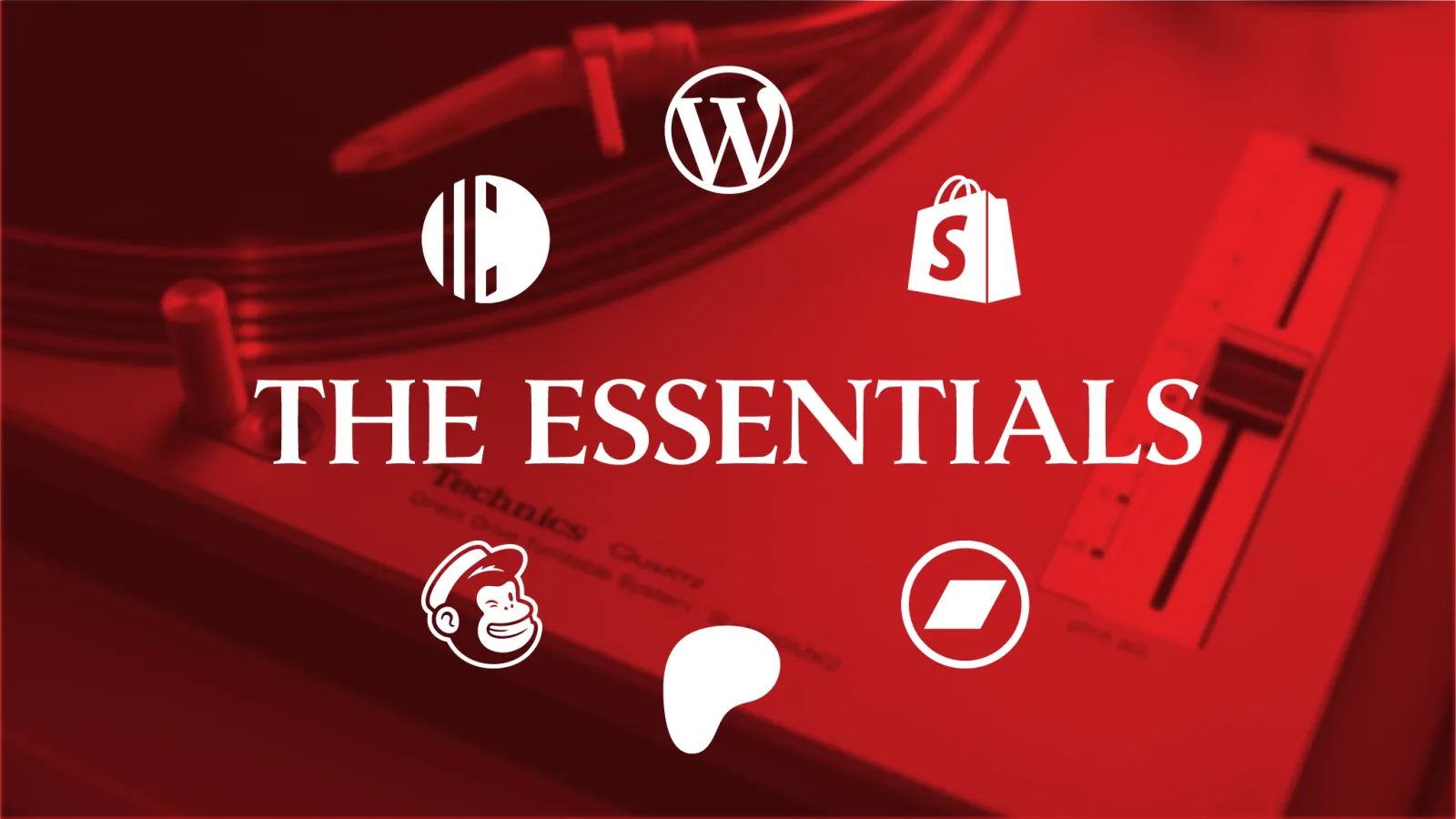Here's a little peek behind the curtain of what good UX research acumen entails: When trying to develop a product with the intention of solving a problem for users, it's not only important to have a solid understanding of all the ways in which the existing landscape is failing to meet their needs, but also critical to get a survey of what does work well. And for me, as someone conceptualising an admittedly ambitious and grandiose vision of integrated tools for running a music business – a record label operating system, if you will – I have been aware of AND exploring new-to-me examples of successful offerings.
Now, to be clear, the reason I even think something like Birdcall is necessary in the first place, despite a lot of these great offerings already existing, is that there's still an opportunity to do something great by way of a cohesive toolkit. But, until such time as that can come to fruition (and maturity), I figured I'd share some of what I'm calling "the essentials" for the purposes of showing my work a little bit!
Wordpress
Website & CMS
One of the unsung heroes of the internet, and a survivor of the wreckage of early web wasteland, Wordpress is one of THE best options for anyone seeking to launch a website or blog. It's an incredibly robust package that allows for lots of customisation, and supplementation via themes and plug-ins. And though it lacks the sort of use-it-right-out-of-the-box simplicity later entries into the web builder/CMS game have brought (think Squarespace, Wix, etc), it is infinitely more flexible for a medium-amount of technical wherewithal. Many hosting providers even offer pre-configured packages to deploy your installation instantly!
Almost every website I've ever built (this blog being a notable exception) has run on Wordpress and, while I love the fact that you get a package to deploy, configure, and manage (at as high a level you choose), and host on your own, it's also a victim of its own flexibility. It's a little bit of a "master of none" type of situation and, though the ecosystem of plug-ins to solve any gap is vast, the farther away from simple blogging your needs get – like being serving as an online home base for a record label – the more complicated (and less tightly synergistic) the platform becomes.
Shopify
E-commerce
Another dominant force in its sector is Shopify. While its a platform known for hitting the primetime within the last few years, Shopify actually launched in 2006, just three years after Wordpress! In my opinion, this platform's mastery lies in its seamless approach to inventory and fulfillment. Whether you are shipping out orders from your website (or any of the social media platforms it integrates with now), or manning a merch table in the real world, it's easy to manage your offerings as an artist or label. The simplicity of navigating all your product and sales reports through a single backend, no matter where you're selling, cannot be understated.
Now, where Shopify suffers is in how its apps ecosystem (akin to plug-ins on Wordpress) shapes up. While there are plenty of apps that can offer specific features you might need (offering pre-orders, assigning packaging to specific items, etc), almost none of these add-ons are free. Shopify has designed their app ecosystem in such a way that it basically allows them to not have to offer a complete featureset because some developer will do it for them, for the chance to profit off their userbase, and Shopify will then in turn profit from that developer's work by taking a percentage of that developer's subscription income. This can cause the cost of entry to balloon pretty quickly (and most Shopify plans aren't exactly cheap to begin with).
If you're a highly profitable store, moving a ton of volume every month, or even primarily use Shopify for in-person POS transactions, this is less of an issue. But smaller e-commerce outfits who are fulfilling orders from home can really get dinged.
Bandcamp
Digital music sales
Bandcamp, the patron saint of ethical music marketplaces*, actually offers WAY more than a simple e-commerce stack for selling digital audio files. Their platform actually also allows artists to sell physical releases and assorted merchandise as well! It does take a little more e-commerce and logistics know-how to really do it successfully (you have to work out the math on shipping for all regions yourself), and customisation/integration with any larger web ambitions is quite limited though, so selling downloads is really where it really shines, especially on Bandcamp Fridays, where the company waives their revenue share for the first Friday of most months.
Furthermore, beyond the ability to sell your wares as an artist, Bandcamp has also become beloved by independent artists for their editorial content as a discovery resource. They also launched a crowdfunding + vinyl brokerage platform a few years ago (I used it to press Full Spectrum Deluxe), and most recently have added tools for hosting virtual events such as ticketed livestreams and listening parties. And, if all that wasn't already a great lineup of offerings, they also have a record store/live performance venue in downtown Oakland which I've personally had the pleasure of playing (though I wouldn't recommend parking your car anywhere nearby).
Now, all of these extras of the Bandcamp ecosystem certainly look good on paper, but to get back to the above asterisk: the last few years of moves on the corporate level have left its future less than certain. Regardless, it remains the best and easiest tool for artists and labels to just get online and start selling records right away.
Patreon
Membership subscriptions
As far as tools for ongoing monthly subscriptions to artists go, there have been a few entries into the canon, but perhaps none more successful than Patreon. The model of paywalling content behind a subscription is not new (remember newspapers?), but Jack Conte really hit big when he conceived of a platform for allowing independent creators to run their own membership programs as a means of subsidising/supplementing income from their work on over-saturated platforms like his platform of origin, YouTube.
The theory is actually sound: Platforms can provide copious amounts of traffic, from which creators can divine a more dedicated audience. But, because these platforms are driven by algorithms (which change priorities at the drop of a hat), a solution external to the platforms was needed to be able to directly monetise that audience, without being subject to factors like advertisers, playlists, etc. It's been so successful, in fact, that the mechanism has since been copied by some of the very platforms it was designed in response to.
That said, Patreon is still designed to serve as a platform of its own. Creators collectively bring audience traffic to the platform, Patreon takes their fees, and discoverability is near-zero. It's perhaps the creator service most transparent about the fact that you WILL be required to cultivate your audience off-platform, but it does also subject creators to a bunch of policies and product decisions designed to accommodate the common denominator, and ultimately divined by a CEO and board who are accountable to almost three dozen VC investors.
Mailchimp
Mailing list
Admittedly, I don't have terribly specific thoughts on this segment of the essentials, as it's probably the vertical I have the least experience/expertise with. I last used Mailchimp specifically well over a decade ago, and I'm currently using a combination of tools for direct customer communication right now (Bandcamp, Instagram channels, Disco, this Ghost-powered blog) as a result of my audience being pretty fragmented. That said, for this very reason, I've come to recognise the importance of mailing lists, and strong tools to get bulk emails out.
So, while Mailchimp is just one of the most recognisable brands in this space, the point remains that mass-direct communication with their fans is the only guarantee artists or labels have against the constantly shifting priorities of platform algorithms. And, while the maturity of email as a protocol means it has become a significant attention hub for users, the commitment it requires from your fans to stay subscribed also serves as an indicator of who really doesn't want to miss out on what you've got going on.
Infinite Catalog
Accounting
Infinite Catalog might be my actual favourite of the bunch, not just because it serves to get artists paid, but particularly because it gets artists paid from what has to be the most arcane revenue source: streaming royalties!
Some critical background on why this tool is even necessary: Unlike Bandcamp, DSPs do not actually pay rightsholders out directly. Artists and labels are required to submit music through a distributor. That distributor is responsible for preparing all music and metadata to be ingested into each DSP's system – all of which are literally based on spreadsheets – and are the entities who are directly paid out for their royalties earned. At this point, the distributors are tasked with parsing sometimes hundreds/thousands/MILLIONS of cells of transactions, each worth fractions of pennies, and then paying out the rightsholders. And if that rightsholder is a label, the label may then subsequently have to generate a report, and issue payouts to songwriters and performers on the records. If this sounds painfully complicated, that's because IT IS.
So, the magic of Infinite Catalog is that they've developed software to ingest these statements, and raw data from SEVERAL different sources, and parse the respective formatting data into easily readable earnings/payout statements, based on the splits agreed upon in the contracts for each song. The ability to simplify torrents of incoming data into two simple instructions – who to pay, and how much – is such an empowering asset, especially for small teams who rely on quick cashflow.
Now, there are lots of other tools that are super useful for running a label. The name of the game is really just getting music and information into the hands of relevant parties (which is a virtually limitless category), so there are always lots of "micro" purpose tools for everything from sharing demos to tracking links. But a lot of these things can also be augmented, or outright substituted by several other almost identical products, and some of their value propositions are specifically tied to the assumption of OTHER platforms' criticality, so perhaps I'll get into those another time.
For now, I'm definitely contemplating these essentials (as well as some of the burgeoning protocol-level moves happening in the industry right now). I really think the way to make Birdcall a sustainable success is to approach it as a sort of connective tissue to the ways in which people are successfully taking up space for themselves online.




